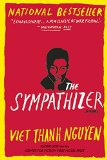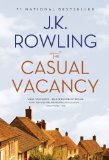Summary | Excerpt | Reading Guide | Reviews | Beyond the book | Read-Alikes | Genres & Themes | Author Bio

Critics' Opinion:
Readers' Opinion:
First Published:
Mar 2015, 272 pages
Paperback:
Jun 2016, 272 pages
 Book Reviewed by:
Book Reviewed by:
Jennifer G Wilder
Buy This Book
The Lost Child is a modern novel constructed within a historical frame, invoking one of the most enigmatic figures in English literary history – Emily Brontë. Onto the backstory of Brontë's Wuthering Heights, author Caryl Phillips layers a twentieth-century saga of family disintegration in which more than the eponymous child is lost on the Yorkshire moors, which are moody and dark, a place of council flats, social services, and youth football leagues.
The novel opens with a lyrical section set in the late eighteenth century, just before the start of Brontë's Wuthering Heights. Phillips invents an origin story for Heathcliff, Brontë's famously Satanic romantic hero. In Wuthering Heights, the country gentleman Mr. Earnshaw comes home from a visit to Liverpool with the young Heathcliff under his cloak, and so introduces the seed of discontent which will disrupt his family's life for generations to come. In The Lost Child, we witness what came before. Heathcliff's mother is Congolese, enslaved in the West Indies, beautiful and broken. Mr. Earnshaw "keeps" her for his pleasure. Brontë describes Heathcliff as a "dark-skinned gypsy," and Phillips juxtaposes this description with the historical facts of the British colonial empire to come up with a black Heathcliff. (A 2011 movie version of Wuthering Heights covered similar ground.) It's an exciting way to envision Heathcliff and puts a new spin on everything that comes later in Brontë's novel.
From here The Lost Child takes an abrupt leap into the more recent past, and we enter the story of Monica, a 1950s prodigy from a middle-class family in the north of England who has managed to make it to Oxford. Her formerly doting father is in the process of disowning her because she has taken up with a grad student named Julius Wilson. Wilson is from some unnamed island where the British Empire is losing its hold and where local politics are in an uproar. Monica marries Julius, and interracial marriage doesn't go over any better at her time and place than does being an intelligent and literary woman who lacks a mentor and, devastatingly, a supportive family. Monica's story makes up the bulk of the novel, and the reader is given the task of drawing conclusions about how the latter story relates to the former.
It's tempting, at first, to read Julius Wilson as Heathcliff to Monica's Cathy, but unlike Heathcliff, Julius soon loses interest in his beloved. When Julius leaves, Monica has to adapt to life as a single mom to her two boys, Ben and Tommy. She takes them north to raise them closer to home. Emily Brontë's beloved moors are near to hand, but like many heroes of twentieth-century stories, Ben and Tommy have obstacles of poverty and neglect to surmount. The boys are not much aware of race, only of an unspecified malevolence in the culture around them.
How Monica, Ben, and Tommy relate to Emily Brontë is not immediately obvious, and it is the work of reading the novel to muse on the connection. This is no recasting of a famous story in another time (the way the movie Clueless is a retelling of Jane Austen's Emma, say). Nor is it a revisionist tale, something along the lines of Pride and Prejudice and Zombies. Phillips is riffing on Brontë, and the parallels and mirrorings are subtle. Echoes of Cathy and Heathcliff appear in various corners of Monica's story, as do shades of Heathcliff's doomed mother from the opening section. As do, most hauntingly, elements from the life of Emily Brontë herself, who makes a cameo appearance about a third of the way in to The Lost Child.
One way to conceptualize Phillips' project here is to think of The Lost Child as entering into conversation with Wuthering Heights, in the way that the transmission of ideas along the lineage of "Great Books" in the literary canon is sometimes referred to as "the great conversation." Phillips brings the conversation to life explicitly when he enters the point of view of Emily Brontë herself and puts words in her mouth. We see her in conflict with Charlotte, fretting over Branwell (see 'Beyond the Book'), and dwindling away on her death bed. Here Phillips is walking on sacred ground – the idea of seeing into Emily Brontë's mind, so long a closed box to literary history, is at once titillating and horrifying. But Phillips treads carefully, and his imagining of the domestic preoccupations and details of an 1850s woman is done with a light touch, in a slightly archaic style which manages to come across as respectful. It's a grand literary gesture and an homage.
I can think of no better pleasure than to read The Lost Child and to reread Wuthering Heights right after. Entering into the nitty gritty of the thematic connections Phillips hopes to make – about loss and identity, gender and race, creativity and adversity – is a satisfying, although not undemanding venture. The ghostly presence of Emily Brontë makes The Lost Child more than the sum of its parts, and the resonances Phillips explores between the literary past and the recent historical past echo in the mind long after the novel is finished.
![]() This review was originally published in The BookBrowse Review in April 2015, and has been updated for the
June 2016 edition.
Click here to go to this issue.
This review was originally published in The BookBrowse Review in April 2015, and has been updated for the
June 2016 edition.
Click here to go to this issue.

If you liked The Lost Child, try these:

by Viet Thanh Nguyen
Published 2016
Winner of 2016 Pulitzer Prize for Fiction. A startling debut novel featuring one of the most remarkable narrators of recent fiction: a conflicted subversive and idealist working as a double agent in the aftermath of the Vietnam War

by J.K. (Joanne) Rowling
Published 2013
Blackly comic, thought-provoking and constantly surprising, The Casual Vacancy is J.K. Rowling's first novel for adults.





The Flower Sisters
by Michelle Collins Anderson
From the new Fannie Flagg of the Ozarks, a richly-woven story of family, forgiveness, and reinvention.

The House on Biscayne Bay
by Chanel Cleeton
As death stalks a gothic mansion in Miami, the lives of two women intertwine as the past and present collide.

The Funeral Cryer by Wenyan Lu
Debut novelist Wenyan Lu brings us this witty yet profound story about one woman's midlife reawakening in contemporary rural China.
Your guide toexceptional books
BookBrowse seeks out and recommends the best in contemporary fiction and nonfiction—books that not only engage and entertain but also deepen our understanding of ourselves and the world around us.